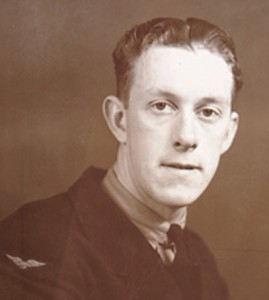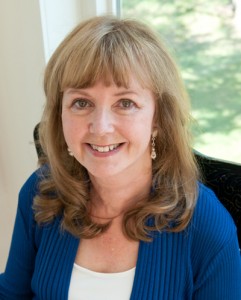Social media is a term that can conjure up images of faceless spam artists, and creepy Big Brother spying on one’s personal life. And it’s confusing too: it seems the virtual world abounds with options, from Twitter to YouTube to Instagram, and others that rise up and disappear again without a ripple.
For writers of memoir, fiction, and nonfiction, however, social media can be a powerful force. I maintain my own website, and I write a weekly blog. I’ve made useful connections on LinkedIn, and I love both Pinterest and Goodreads.
 But my favourite research tool, one that has helped me countless ways in my writing career, is Facebook.
But my favourite research tool, one that has helped me countless ways in my writing career, is Facebook.
First of all, I wouldn’t be here today, writing on Allyson Latta’s blog, if it weren’t for Facebook.
I belong to a Facebook group called the RCAF Association, composed of people who post memories and photographs of the Royal Canadian Air Force. Someone in that group shared a link to a lovely post by Allison Howard called “Vanishing Letters of War: What We Stand to Lose” (one of Allyson’s blog’s best-read posts to date).
That link led me here, where I had the pleasure of learning about Allyson — her editing, writing, and teaching — and delving into the wealth of information on this excellent website. (I particularly enjoy her contributions to the photography series Wordless Wednesday.)
I know not everyone uses Facebook, and many who avoid it do so because of concerns about the following:
1. Privacy
You can get around this, however. You can create a Facebook profile by giving yourself a fake name. Then set your privacy settings on maximum, and avoid posting personal photos. That way you have access to everything on Facebook while revealing very little about yourself.
You do need a valid email address, but once again, you can set one up through Hotmail or another free service and use it for nothing else.
(If you need help with this, ask a younger person. My 30-year-old daughter, who writes her own homemaking blog called Miss Tweedle, is my personal “techie” and she is very patient with me.)
2. Time-wastage
My friends post some interesting items on Facebook, but also some pointless fluff, and yes, I do find myself chuckling at jokes and admiring pretty photographs of sunsets when I should be working.
Recently I discovered this solution: I downloaded an app called Anti-Social, which allows me to block any website I don’t want to see, for a period of up to eight hours.
Every morning after I have finished drinking my coffee and answering messages, I tell it to block Facebook for the next eight hours. So far it’s working well. You could, of course, use willpower — something I apparently don’t have.
At its best, though, Facebook helps me — as it can help you — with writing and research.
 My soon-to-be-published novel, Bird’s Eye View, is about a young Canadian who joins the British air force in the Second World War and becomes an interpreter of aerial photographs, spying on the enemy from the sky using a three-dimensional instrument called a stereoscope (see photo at top of post).
My soon-to-be-published novel, Bird’s Eye View, is about a young Canadian who joins the British air force in the Second World War and becomes an interpreter of aerial photographs, spying on the enemy from the sky using a three-dimensional instrument called a stereoscope (see photo at top of post).
Because my focus is the Second World War, and specifically women, I have joined about a dozen Facebook groups ranging from the RCAF group to another more general group called Friends of the Forties, to another called Canadian War Brides, to another called Women of World War Two.
Not only do these groups attract members who are interested in the wartime era, but also they include experts: librarians, historians, and authors. These people point me to books I haven’t read, and websites I haven’t seen, and even other specialized Facebook groups.
Facebook allows you to connect, for free, with hundreds, even thousands, of people who have the same interests. In fact, one billion people are now on Facebook: one-sixth of the world’s population. So through it there is an untapped source of knowledge out there that can be accessed pretty easily. You can ask questions too, either by posting on the group site or by sending another group member a message.
When proofreading my novel, for example, I needed to find out in a hurry whether in conversation the No. 6 Bomber Group in Yorkshire would have been called “Group Six.” I messaged one of my Facebook group contacts, an air force historian, and the answer came back straightaway — “Don’t call it Group Six! Everyone calls it Six Group!” (This may seem a minor point, but thank goodness I checked, as I know from bitter experience that military buffs are my harshest critics).
When researching your family’s history, you can seek out Facebook groups devoted to particular towns, schools, or places of business. I belong to a group called You Know You Grew Up in North Battleford If You Remember . . . People are on there day and night, posting old photographs and reminiscences. I venture to say almost every community in Canada now has such a group.
A woman from Australia named Janet Mears posted on this group site, asking if anybody remembered her great-uncle Maxwell Cassidy who was killed in an air crash in 1944 while stationed at North Battleford, Saskatchewan.
I was able to contact Janet Mears and tell her that my mother, who is still living, was once Max’s girlfriend! We exchanged emails and photographs — including a picture of my mother that had been in Max’s possession.
This wonderful experience provided material for my blog post called “Memories of Maxwell Cassidy.” Janet was particularly touched to learn that I had immortalized Max in my wartime novel, and even given my character the same name.
Facebook is also a great way to promote your own writing, whether you are published or hoping to be published. After I completed writing my novel last fall, I still had many interesting stories that hadn’t made it into the book. So as a way of sharing them I created a weekly blog called Wartime Wednesdays.
Each Wednesday, I post a link on my Facebook groups, where I receive useful feedback as well as readership. Through a free program called Google Analytics I’m able to see where my Wartime Wednesdays readers are coming from. So far, a whopping 44 percent find my blog through Facebook.
Facebook even led to another small publishing success. When I wrote a blog post called “My Dad’s Best Christmas: 1945,” I posted the link on Facebook, and another writer emailed to ask if he could include it in an upcoming book that he is editing about air force servicemen.
My personal page is for family and friends, but because I want readers to find me, I also have a Facebook Author Page where I post items visible to the public. If you are already a Facebook member, you can “Like” my public page called Elinor Florence – Author to receive updates on my publishing journey. I post there once or twice a week.
You may be thinking: “But Facebook is mostly for young people.” No longer. We baby boomers are taking over. A recent Facebook Demographic Report shows that teenaged users declined by 25 percent over the past three years, while the number of users over 55 exploded, with 80 percent growth. (I suspect that’s why the teens are leaving.)
 Finally, much of my moral support on this writing journey comes from Facebook. I live in Invermere, British Columbia. It’s a small mountain resort town without writing groups or courses (although the beauty and the peace make for an ideal writing environment in other ways).
Finally, much of my moral support on this writing journey comes from Facebook. I live in Invermere, British Columbia. It’s a small mountain resort town without writing groups or courses (although the beauty and the peace make for an ideal writing environment in other ways).
Recently I posted on my Facebook Author Page that I had completed the final proofread of my novel, and that I was terrified about having missed some egregious error. (Remember all those military historians, just waiting to hold my feet to the fire.)
I received heartwarming messages from many people congratulating me on passing this important milestone and sharing their own related experiences.
And that was awfully reassuring.
♦ ♦ ♦
ELINOR FLORENCE grew up on a Saskatchewan grain farm, a former Second World War training airfield. Her journalism career took her from Carleton University in Ottawa, to writing for her hometown newspaper in North Battleford, then the Western Producer in Saskatoon, the Red Deer Advocate, the Winnipeg Sun and the Vancouver Province.
Weary of city life, Elinor and her husband moved their young family to the mountain resort of Invermere, British Columbia. For the next eight years, she worked from home as a regular contributor to Reader’s Digest where she specialized in the “heart” stories. But she returned to her newspaper roots when she purchased her own weekly paper, the Columbia Valley Pioneer, and turned it into an award-winning community staple. Four years ago, she sold her newspaper to fulfill her long-held dream of writing fiction. Married with three grown daughters, Elinor loves village life, historical research, old houses, and flea markets. Her first historical novel Bird’s Eye View will be published by Dundurn Press in October 2014. It is available for pre-order from Amazon.ca.
Read more about Elinor and check out her blog, Wartime Wednesdays, by visiting her website: Elinor Florence.
Or send her a message on Facebook!



I really enjoyed reading this post. Elinor and I met on Facebook when I went looking for anyone who may have remembered Max Cassidy. I remember how excited I was to hear from her and kept checking back to see if there was another post. The news of her mother still being with us was amazing and that she remembered Max, oh my goodness, there were goosebumps and a few tears.
Apart from this paragraph in Elinor’s post, this story has reminded me of a time more than 20 years ago. One day my eldest son, Chris (who by the way is known by his friends as Max, his middle name) came home from school and asked if he could buy a second hand modem. He was in year 7 or 8 at high school at the time and was very interested in the school’s computer. I asked him what a modem was, he told me that it was so he could use the internet, I absolutely refused to allow such a thing in the house. We had a computer, a Commodore 64 I think at that time, but no way was the internet going to be connected to our house. I am not sure why now but I do know that the internet was a ‘bad thing’ in my mind. I did know that the kids at school were getting the latest news from around the world and that was great but maybe I imagined Big Brother would spy on us. (Not sure why I thought NASA would be interested on checking up on what we were doing in our humble home in Tasmania)
I am so glad that my attitude has changed, as like so many others, I am not sure where I would be today without it. It is now the only place I do family history research or want to know anything about anything!! A couple of years ago we moved from our home town to a city over a thousand kilometers away where we didn’t know a single person. My husbands new job took him away from home for days at a time, so apart from Facebook being my lifeline to home, it was as a great way to meet new people. I found a group of women who got together every week for a coffee and a chat, and if I needed to know about doctors or a good hairdresser, I just ask on the group page and I get help, no need for trial and error 🙂 I have now discovered that there are Facebook groups and pages for just about anything in our local area and I know that I am never alone in our new home town.
I reading Elinor’s posts on Wartime Wednesday and now look forward to reading more of Allyson’s posts.
Cheers Janet
Elinor, I appreciate your comment about my essay and couldn’t agree more about the usefulness (and sometimes comfort) of facebook. Another coincidence evolving from this story is that I was contacted by a woman who had written a book about her father who, still alive at 93, was a prisoner of war in Germany. She wondered if my son Greg, would be willing to be a fact checker/proof reader of her book. The two connected and had a wonderful back and forth correspondence and by all accounts it was an enjoyable and enlightening experience for both.